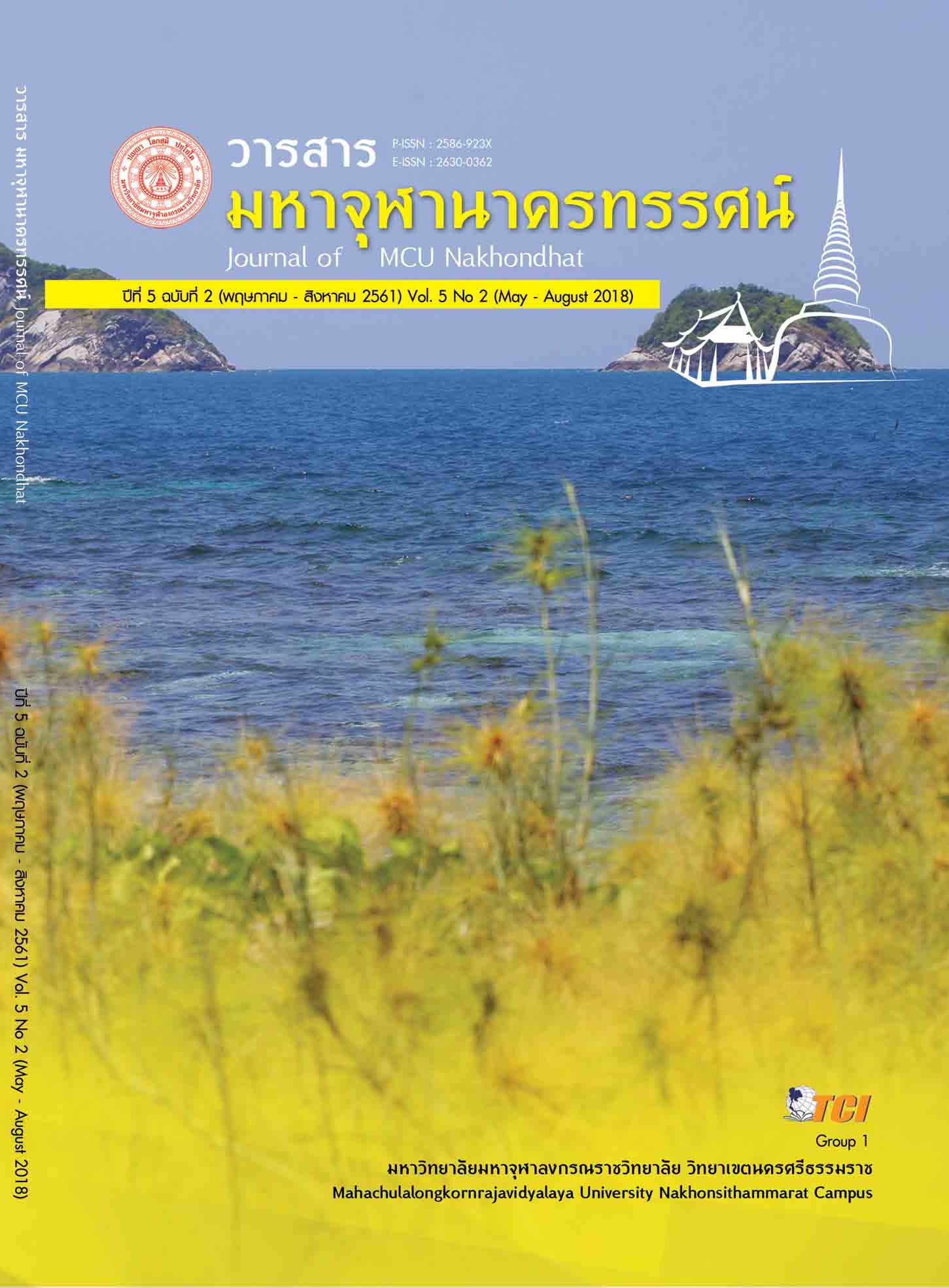An Analysis of the Buddhist Monks’ Leadership Characters in Buddhist Propagation
Main Article Content
Abstract
This research had the objectives that were 1) to study the process to promote and make the youth in the good citizenship by the Buddhist monks who taught some Buddhist principles in Thai society, 2) to develop it and 3) to present its models. This was the mixed method research by using the quantitative research with collecting the data and by using the questionnaires. This was the qualitative research with collecting the data by using the deep interview. Its tools consisted of the 175 pieces of questionnaires from the Buddhist monks and the key persons had the 26 persons by the specific selection. The used statistics in this research was the percentage, means and standard deviation.
The finding were as follows:
The process to promote and make the youth in the good citizenship by the Buddhist monks who taught some Buddhist principles in Thai society was in overview found that their opinions were at the high level order by order from the highest too low. The process of cultivating the common sense in the good citizenship and the good qualification of citizenship according to the opinion of Buddhist monks who taught the principles of Buddhism. In the overview and the depth interview, the promoting and cultivating process was managed by using the Trisikkha consisting of Sila, Samadhi and Panna to drive it. 1) Promoting and cultivating the strong mind, 2) cultivating the morality, 3) cultivating the youth to learn the principles of Buddhism, 4) developing the consciousness to develop oneself and society.
Article Details
References
บุญหนา จิมานังและฤดี แสงเดือนฉาย. (2551). การประเมินประสิทธิภาพการสอนของพระสอนศีลธรรมในสถานศึกษาเขตปกครองคณะสงฆ์ภาค 9. รายงานการวิจัย สำนักวิชาการ มหาวิทยาลัยมหาจุฬาลงกรณราชวิทยาลัย วิทยาเขตขอนแก่น.
ประภาพิศ สัญชาติเจตน์. (2544). จิตวิยาสังคม. กรุงเทพฯ.
ประสพสุข พันธุประยูร. (2555). บทบาทพระสงฆ์ในการอนุรักษ์ทรัพยากรป่าไม้ในจังหวัดภาคเหนือของประเทศไทย. รายงานการวิจัย. สถาบันวิจัยสังคม มหาวิทยาลัยเชียงใหม่.
พระสุรเชษฐ์ เจริญสุข. (2549). เจตคติของผู้ปกครองตอบทบาทครูพระสอนศีลธรรมในโรงเรียน ระดับมัธยมศึกษาตอนต้น โรงเรียนวัดบ้านก้อง จังหวัดลําพูน. วิทยานิพนธ์ศึกษาศาสตรมหาบัณฑิต บัณฑิตวิทยาลัย มหาวิทยาลัยเชียงใหม่.
สิน งามประโคน และคณะ. (2550). ประสิทธิภาพการสอนของครูสอนวิชาพระพุทธศาสนา ในโรงเรียนประถมศึกษาและมัธยมศึกษา. รายงานการวิจัย สถาบันวิจัยพุทธศาสตร์ มหาวิทยาลัยธรรมศาสตร์.
Allport, Gordon W. (1937). Personality: a psychological interpretation. Oxford, England: Holt.
Parsons. Talcott. (1953). Working Paper Is the Theory of Action. New York : Free Press.


